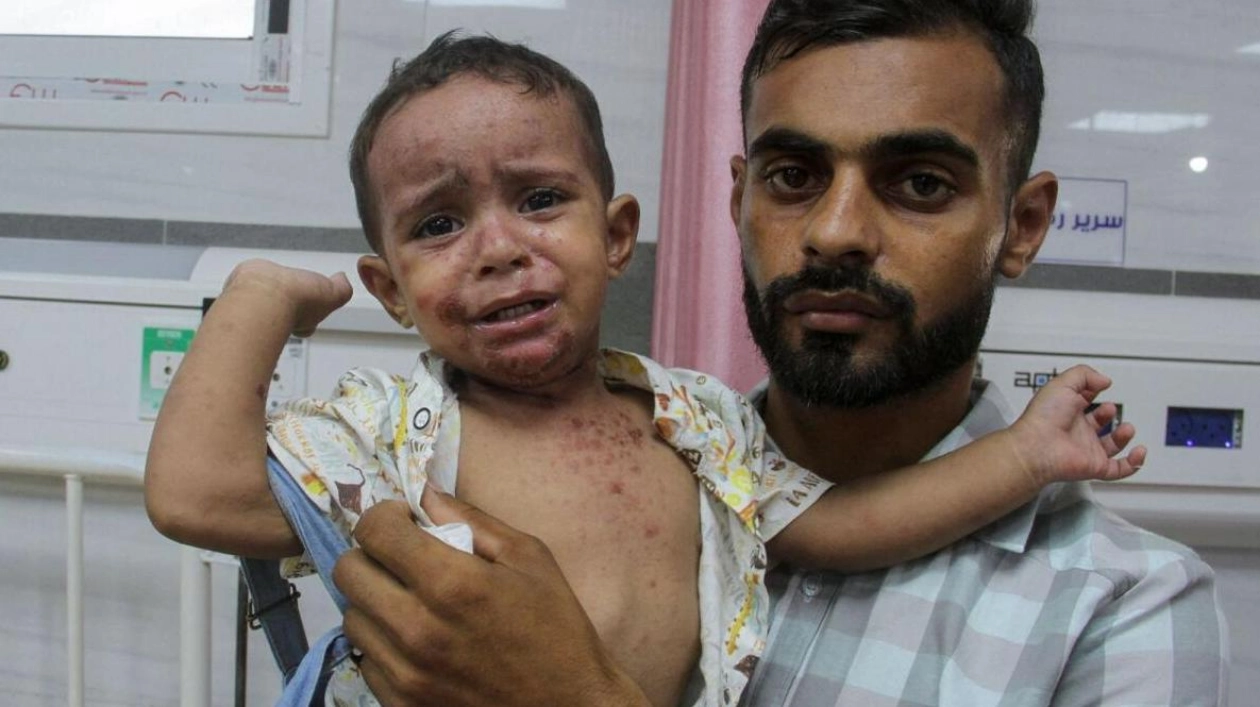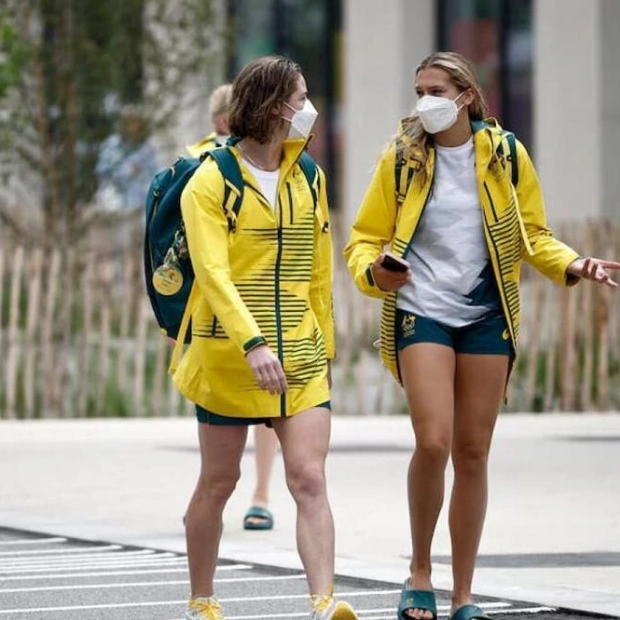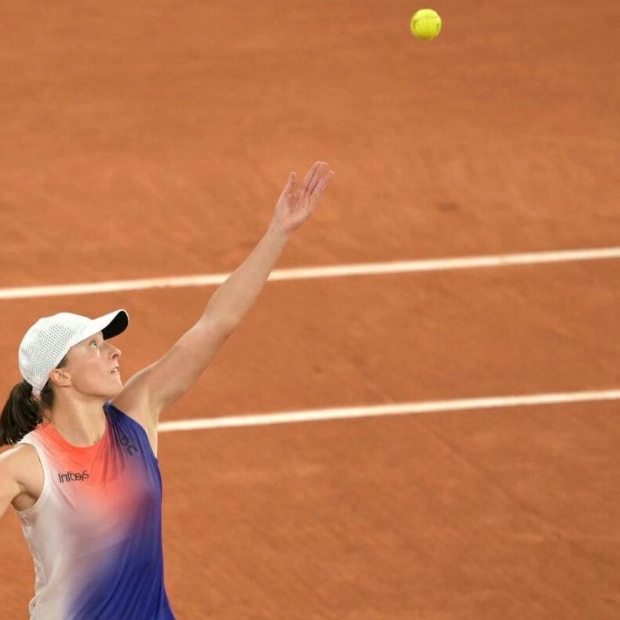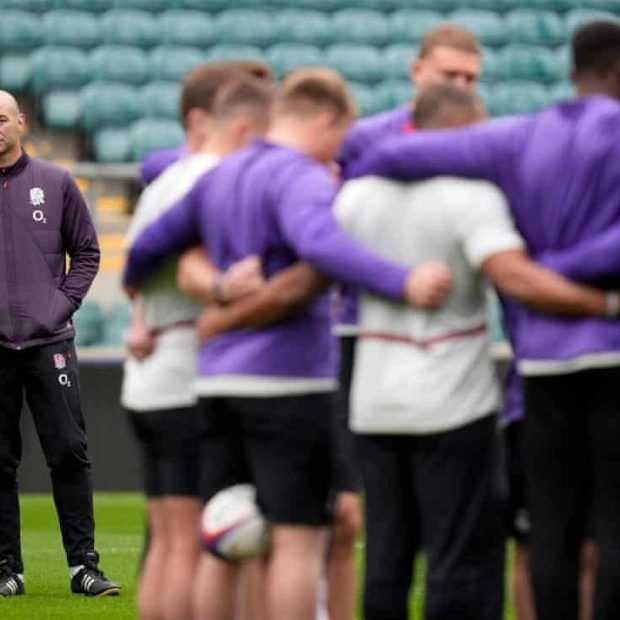Like countless children in Gaza, 3-year-old Yasmine Al Shanbari is not just enduring the chaos of war. She is plagued by a skin disease with no immediate relief in sight, as medical supplies are scarce and few hospitals are operational in the Israeli-blockaded area.
The ongoing 10-month conflict between Israel and Palestinian militant group Hamas has left the Gaza Strip without clean water, a lack of aid and medications, and widespread raw sewage, leading to skin diseases and other health issues. Red, itchy patches have covered Yasmine's face, and her father feels powerless as she sits on his lap in a burnt-out, overcrowded school that serves as their shelter in the Jabalia urban refugee camp in northern Gaza. Tiny insects were clearly seen fluttering around her face, while garbage piles decomposed in the intense summer heat outside.
"The rash on her face has persisted for nearly 10 days now and hasn't cleared," said her father, Ahmed Al Shanbari. "We didn't have any medicine to give her, hoping it would disappear on its own." The death toll in Gaza continues to rise, with nearly 40,000 Palestinians killed, according to Gaza authorities. Hamas, the Palestinian Islamist group that governs Gaza, initiated the war when its militants crossed into Israel on October 7, killing 1,200 people and taking over 250 hostage, according to Israeli reports.
Skin diseases are just one of the many illnesses infiltrating one of the most densely populated areas on earth. "Yesterday, we discussed hepatitis, and today it's contagious skin diseases. Every day, new diseases are spreading among children," said Dr. Wissam Al Sakani, spokesman for Kamal Adwan Hospital. The World Health Organisation (WHO) has raised concerns that Hepatitis A and polio are also spreading among children.
UN agencies have warned of the high risk of further spread of infectious diseases in Gaza, due to chronic water scarcity and the inability to properly manage waste and sewage, according to a recent report. "The waste management system in Gaza has failed. Trash piles are accumulating in the intense summer heat. Sewage is being discharged onto the streets while people wait hours just to use the toilets." Israel denies responsibility for delays in delivering urgent humanitarian aid to Gaza, stating that the UN and others are responsible for its distribution once inside the enclave.
Ammar Al Mashharawi, a 2-year-old toddler, also has a fiery red rash covering his face and body at Kamal Adwan Hospital, which was hit by Israeli missiles in May. "Look at the child, his entire body is like this. We've been to more than one hospital trying to find medicine for him," said Ammar's father Ahmed as he held his crying son while medical staff examined him. "We adults can manage somehow, but the children, God help them, have no food or medicine. The situation is beyond description," Ahmed added.






